The US Capitol attack: A Medieval Battle in the Constitutional Republic
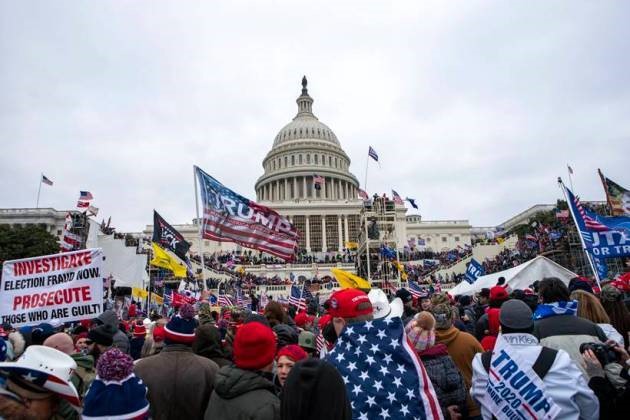
Source: The Indian Express
On the anniversary of January 6, 2021, US Capitol Attack, US President Joe Biden had accused the former US President Donald Trump of creating a 'Web of Lies' about the 2020 Presidential election in a speech from the Capitol's National Statutory Hall. He held that Donald Trump prevented the peaceful transfer of power, assaulted the people's will, and attempted to overturn the election's results. He said that "the former US President valued Power over Principle." Additionally, President Joe Biden termed it a day of insurrection in one of the tweets.
President Joe Biden also referred to the presence of Clio, a sculpture in the dome, renowned as the Muse of History, as the breach erupted on that particular day. She is well-known for documenting developments as they proceed to unfold. Furthermore, US Vice-President Kamala Harris reflected on the dual nature of democracy- its fragility and strength. She emphasised having a future guided by the supreme power vested in the people.
Later, Donald Trump, the former US President, issued a statement, branding Biden's remarks "political theatre" and an attempt to deflect attention from how he has "failed." Further, he said that Biden "used my name today to try to further divide America."
By Vani Sharma - Batch 20-22
Ukraine tensions rising, amid Russia-NATO talks
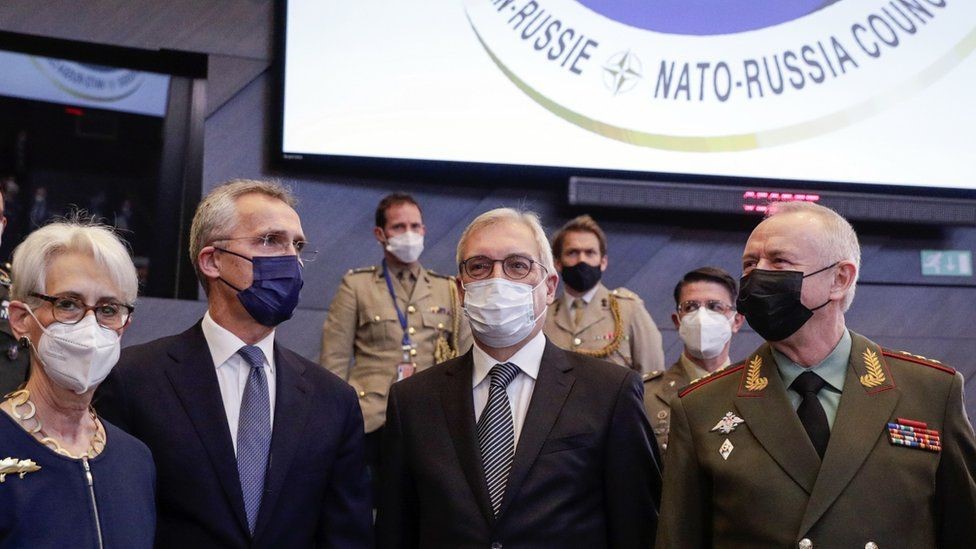
The Nato-Russia Council met for the first time since 2019.
Source: BBC (https://www.bbc.com/news/world-europe-59971955)
In late 2021, satellite photos revealed that approximately 100,000 Russian troops had amassed near the Ukrainian's Donbas region. The build-up prompted a fear of invasion by Russia over the pro-west Ukraine. Warnings had been issued by the US President Joe Biden and other European leaders, leading to a strong worded exchange of threats over territorial integrity, sanctions and national interest. Moscow believes that Ukraine is being heavily armed by the NATO members, causing the aggravating situation at the border.
Russia has put forward a highly contentious eight-point draft treaty with security guarantees from the west, in exchange for diffusing tensions with Ukraine. The list of demands includes a ban on Ukraine ever becoming a NATO member and halting further eastward expansion by the alliance in the region. While Ukraine is not a NATO member yet, Ukrainian government insists that Russia cannot control Kiev's involvement with NATO.
To ease the tensions through diplomatic channels, a week-long security talks were held between Russia and NATO. Russia later described these talks "unsuccessful" as the parties continued to disagree on fundamental issues. Russia had previously held talks with Ukraine and the US separately, but with no progress and hitting a 'dead end'.
By Aarushi Gupta - Batch 20-22
India's Assistance Diplomacy for Humanitarian Crisis in Afghanistan
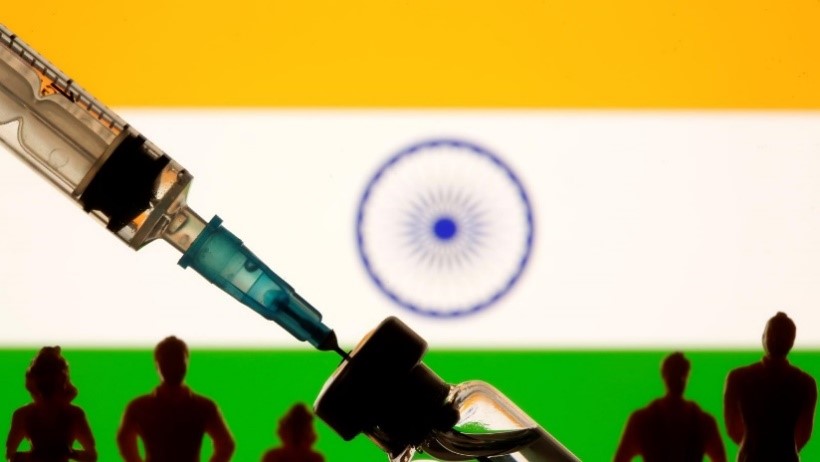
India vaccine diplomacy rises in the region
Source: Money Control (https://www.moneycontrol.com/news/health-and-fitness/covid-19-vaccine-update-india-announces-supply-of-coronavirus-vaccines-to-six-countries-under-grant-assistance-6367241.html )
The current pandemic crisis has hit nations hard, across the globe on all fronts. Nations have rolled out measures to curb the outbreak of the pandemic, and vaccine developments has brought in relief to protect from the detrimental effects. India has emerged as the new vaccine making hub, as well as the vaccine supplier
Through India's humanitarian initiative of "Vaccine Maitri", India provided humanitarian assistance to Afghanistan with 500,000 doses of India made COVAXIN vaccine on 1 January 2022. Afghanistan is one of the biggest development assistance partners of India.
India is committed to deal with the Afghanistan humanitarian crisis and providing assistance to the people of Afghanistan. It will send help to the Afghan people with batches of 1 million COVID vaccine, food grains, and essential life-saving drugs through WHO, and will continue to do so through the UN agencies. According to the press release by India's Ministry of External Affairs, the humanitarian assistance comprising of life saving medicines has been delivered to Indira Gandhi Hospital in Kabul on 7 January 2022.
By Hitendra Boradey - Batch 20-22
North Korea's Ballistic Missile Launch
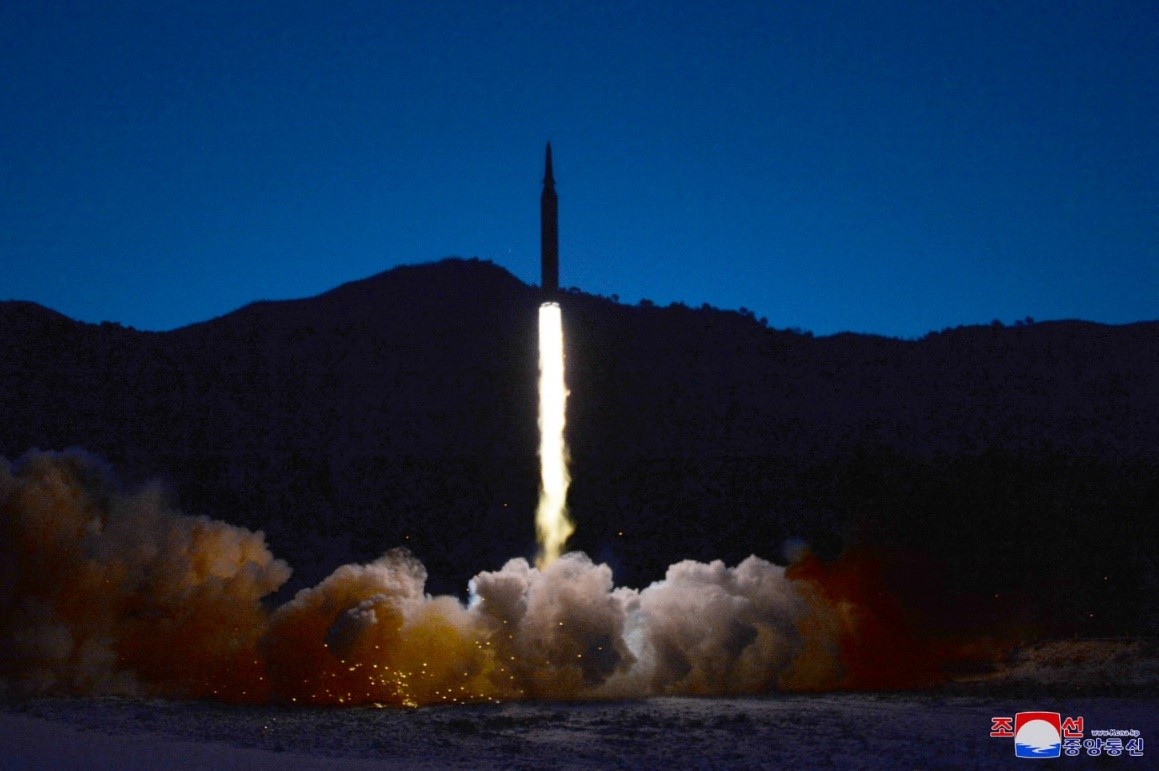
Source: https://www.reuters.com/world/asia-pacific/us-imposes-sanctions-north-koreans-russian-after-missile-tests-2022-01-12/
Much to international apprehension, on 11th January 2022, North Korea launched its second ballistic missile in a week. North Korea's leader Kim Jong Un attended the missile launch, depicting his special attention to the hypersonic missile programme. Shortly after the launch, Kim Jong Un called for strengthening the country's strategic military forces. Addressing military scientists, the leader sanctioned an increase in the country's military capacity with cutting-edge technology.
The new 'hypersonic' ballistic missile has elevated security concerns in the region, considering its extreme maneuverability. The missiles will be a massive threat to existing missile defense systems.
While North Korea's talks with the United States and South Korea remain stalled, the former responded to the tests, describing them as "dangerous and destabilizing." Washington consequently went on to impose sanctions on the missile programme. Meanwhile, the European Union condemned the tests calling them a threat to international peace and security. Past actions by the UNSC and sanctions imposed by countries have failed to deter North Korea from proceeding with its military programs. The UN Security Council had held closed-door talks after the first missile launch, with no conclusive decision on the course of action.
By Kaira Vartak - Batch 20-22
Kazakhstan Unrest
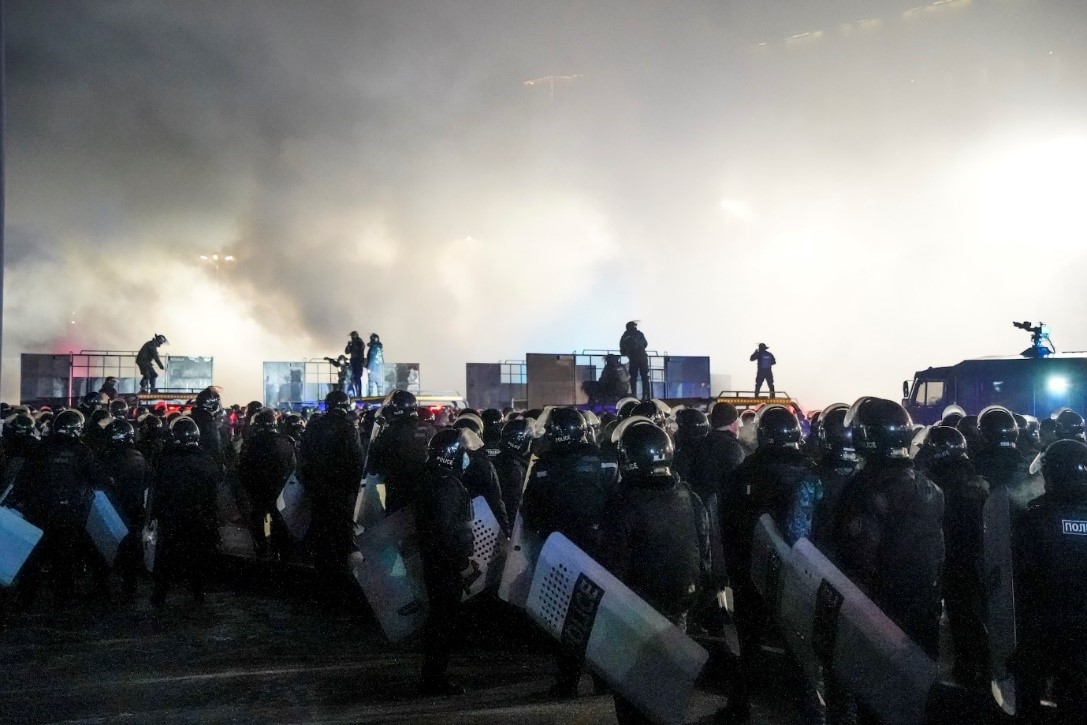
Protest at Zhanoozen
Source: AP Photo Vladimir Tretyakov
On 1 January 2022, a country with 3 per cent of oil reserve removed the subsidiary cap on fuel, a chain of unrest, chaos and protests broke loose from the Zhanoozen city of Kazakhstan. It is one of the worst unrests witnessed in post-independent Kazakhstan.
According to the government, 164 people have died, and more than 19,000 have been arrested; The protest was so severe that the Kazakhstan government had to request Collective Security Treaty Organisation (CSTO), a military alliance of Russia, Armenia, Belarus, Kyrgyzstan, Tajikistan, and Kazakhstan itself to send in their troops to regain control over the country.
As a compromise, the Kazakhstan government has restored the older oil price of 50 tenges per lit. For the next six months. This unrest event exposes the underlying socio-economic problem of Kazakhstan; according to the wall street report, less than 200 elite Kazaks control almost 55% of the country's wealth.
Tokayev's call for help and Moscow's swift entry and exit send a clear strategic message across the region. Russia will protect Moscow's friendly government; since the region shares similar socioeconomic and extremist problems, it was vital to control the unrest. Kazakhstan government calling a day of morn as a mark of respect for lives lost, all international eyes will be on this region.
By Pradyut Das - Batch 20-22